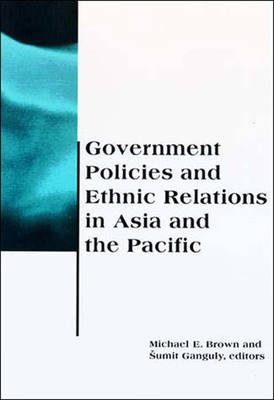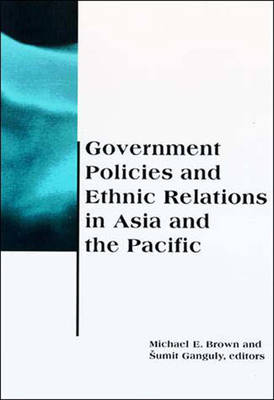
- Retrait gratuit dans votre magasin Club
- 7.000.000 titres dans notre catalogue
- Payer en toute sécurité
- Toujours un magasin près de chez vous
- Retrait gratuit dans votre magasin Club
- 7.000.0000 titres dans notre catalogue
- Payer en toute sécurité
- Toujours un magasin près de chez vous
Government Policies and Ethnic Relations in Asia and the Pacific
Description
Ethnic conflict, one of the most serious and widespread problems in the world today, can undermine efforts to promote political and economic development, as well as political, economic, and social justice. It can also lead to violence and open warfare, producing horrifying levels of death and destruction. Although government policies on ethnic issues often have profound effects on a country, the subject has been neglected by most scholars and analysts. This volume analyzes different policies governments have pursued in their efforts to contend with the tensions inherent in multiethnic societies. The book focuses on Asia and the Pacific, the most populous and economically vibrant part of the world. The heart of the book is a set of case studies of government policies in sixteen countries: India, Pakistan, Sri Lanka, Burma, Thailand, Malaysia, Singapore, Indonesia, the Philippines, China, Australia, New Zealand, Papua New Guinea, Fiji, Vanuatu, and the Federated States of Micronesia. The studies consider a wide range of political, economic, educational, linguistic, and cultural policies, and how these policies have evolved over time. Using a broad comparative perspective to assess the effectiveness of different governmental approaches, the authors offer policy recommendations that cut across individual countries and regions.
Spécifications
Parties prenantes
- Editeur:
Contenu
- Nombre de pages :
- 630
- Langue:
- Anglais
- Collection :
Caractéristiques
- EAN:
- 9780262522458
- Date de parution :
- 20-10-97
- Format:
- Livre broché
- Format numérique:
- Trade paperback (VS)
- Dimensions :
- 157 mm x 233 mm
- Poids :
- 870 g

Les avis
Nous publions uniquement les avis qui respectent les conditions requises. Consultez nos conditions pour les avis.





